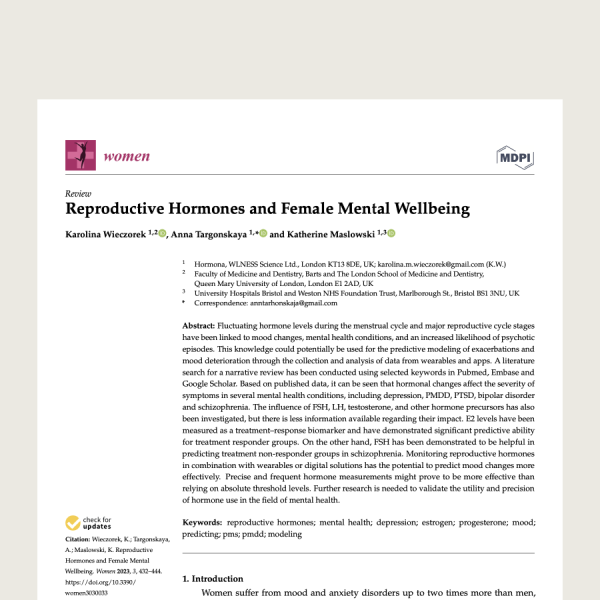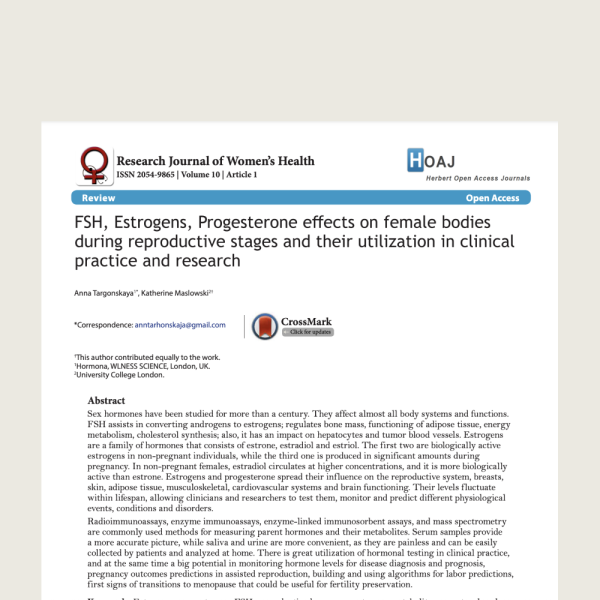Despite significant progress in recent years, there are still gaps in our understanding of women’s health. We aim to solve missing puzzles and share our findings. In addition to internal projects, we use existing published data to summarize available findings and provide foundation of knowledge in the field.
PUBLISHED RESEARCH
“Fluctuating hormone levels during the menstrual cycle and major reproductive cycle stages have been linked to mood changes, mental health conditions, and an increased likelihood of psychotic episodes. This knowledge could potentially be used for predictive modeling of exacerbations and mood deterioration through the collection and analysis of data from wearables and apps. A literature search for a narrative review has been conducted using selected keywords in Pubmed, Embase and Google Scholar.”


PUBLISHED RESEARCH
The importance of female sex hormones is not under question, but what is the whole spectrum of their effects on bodies during different stages of the reproductive lifecycle. We’re summarizing the evidence of their major role in different periods of the reproductive life cycle, and investigating whether enough of their potential is used for clinical decision-making and research, epidemiological studies, and what is still under attention.
Information you can rely on
Science is at the core of everything we do, which is why our team includes doctors and nutritionists with decades of combined experience in the field of hormone health. As such, all of our content, from the web to Instagram, follows three core principles.
Accuracy
We only use evidence-based information when creating our app features and health content. To ensure we provide answers our users can trust, we closely follow the latest research and medical guidelines.
Current
The worlds of science and medicine move fast. Staying up to date with the latest research and findings is crucial for us all.
Expert-reviewed
Every word we publish has been reviewed by a medical professional.

Dr. Anna Targonskaya
Medical Advisor (MD, OB/GYN)

Dr. Katherine Maslowski
Medical Advisor (MBBS, OB/GYN)

Rhea Perez
Science Lead

Laura Parfitt
Head of Data

Adam Gerthel
Technical Lead

Ciara Horrigan
Regulatory Manager
As you get to know your individual cycle by using the Hormona app, you’ll quickly see just how much your hormones fluctuate over the course of a cycle. Those fluctuations impact your life every day by influencing your mood, sleep patterns, energy levels and productivity.
We can help you harness the power of your hormones, predicting when symptoms are likely to strike, and how long they’ll affect you.
